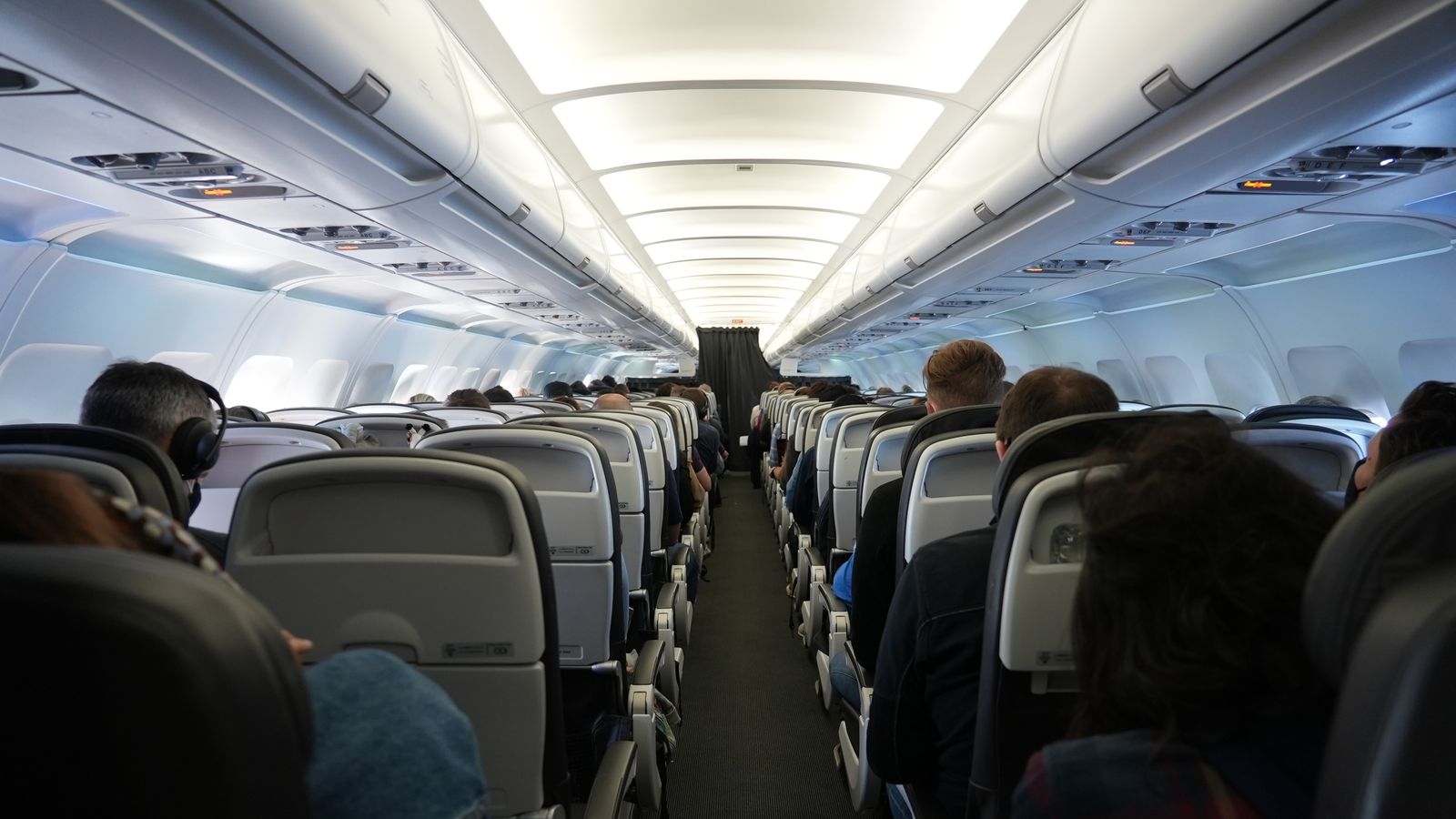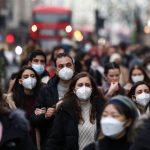The UK is “in for a rocky time” as people head off on holiday to a Europe where vaccination levels are not as high as at home, an expert has told Sky News.
Gabriel Scally, a member of Independent SAGE, a group of scientists which provide alternative advice to the government’s own scientific group, said he was really worried by the risk from the Indian coronavirus variant in Europe.
He told Sky News: “There are great concerns about this particular variant because of its much more transmissible characteristics and it hasn’t really taken off in Europe yet.
Follow live coronavirus updates from the UK and across the world
Please use Chrome browser for a more accessible video player
“If it takes off in Europe, I think we’re in for a very rocky time because, of course, vaccination levels are not at the same high level as they are in the UK, in much of Europe.
“And at the same time, we’re reducing travel restrictions and many more people are disappearing off on holidays and will come back and not necessarily have any really managed quarantine. And we know self isolation doesn’t work.
“I’m really worried about a big wave in Europe if this very transmissible variant or another one that comes along can take off. So a good quarantine system on our borders is absolutely essential.”
Sir Jeremy Farrar, director of The Wellcome Trust charity, also warned there was “a risk” the Indian variant could be transmitted by people travelling out of the UK.
He told BBC Radio 4’s Today programme: “I think travel should still be very cautious and only when absolutely essential.”
So far, the only European destinations available to British holidaymakers other than Gibraltar are Portugal and Iceland.
But the government says it is keeping other destinations under review and Transport Secretary Grant Shapps said he anticipates the green list of countries that pose the lowest risk “will grow over time as the situation improves globally, meaning further opportunities for international travel will open up”.
Please use Chrome browser for a more accessible video player
The Daily Telegraph reported that EU ambassadors are set to sign off an a plan on Wednesday to allow British holidaymakers to travel to Europe without having to take a COVID test or quarantine.
Thousands of people have departed on international flights after the ban on foreign holidays was lifted for people in Britain, much to the relief of travel firms.
On Monday, as Sky News spoke to travellers after the end of the ‘Stay in the UK’ regulation, it was clear that people were also heading off to countries on the amber list, despite a government warning not to.
Health secretary Matt Hancock emphasised this when he said on Times Radio that destinations on the amber list – which includes Spain, France, Italy and Greece – are “places that you shouldn’t go to unless you have an absolutely compelling reason”.
People who head to one of the 169 amber countries are required to quarantine at home on their return, take a series of COVID tests and complete a passenger locator form.
Please use Chrome browser for a more accessible video player
As of 10 May, as well as in the UK and India, the most transmissable version of the Indian variant, B.1.617.2, has been detected according to the European Centre for Disease Control in the USA (192), Singapore (91), Australia (58), Germany (31), Japan (20), Denmark (18), Bahrain (13), Belgium (12), France (12), Ireland (12), Switzerland (10), New Zealand (9), Italy (5), Poland (5), China (4), Spain (3), Sweden (3), Indonesia (2), the Netherlands (2), Aruba (1), Austria (1), Canada (1), Greece (1), Hong Kong (1), Luxembourg (1), Norway (1), Romania (1), Slovenia (1).
It is thought that significantly more cases will have actually occurred in those countries and others.
The ECDC found the proportion of cases involving the Indian variant are rising steeply in France, Ireland and Belgium and rising in several other countries.
:: Listen to Sophy Ridge on Sunday on Apple podcasts, Google podcasts, Spotify, Spreaker
Meanwhile, first dose vaccination rates in Europe vary from around 10% in Bulgaria to around 65% in Malta, according to Our World In Data, with most countries on between 20 and 40%.
In Germany, health officials on Tuesday quarantined the residents of two high-rise buildings in a German town after several people tested positive for the Indian variant.
Officials said “there are currently several infections with the Indian virus variant” in the western town of Velbert, with local broadcaster WDR reporting about 200 people in the two buildings were affected.
A campaign is under way on 200 Greek islands to increase vaccination rates to ensure they are ready to accept tourists in the upcoming summer. Currently, around a quarter of Greek people have had their first dose.






















